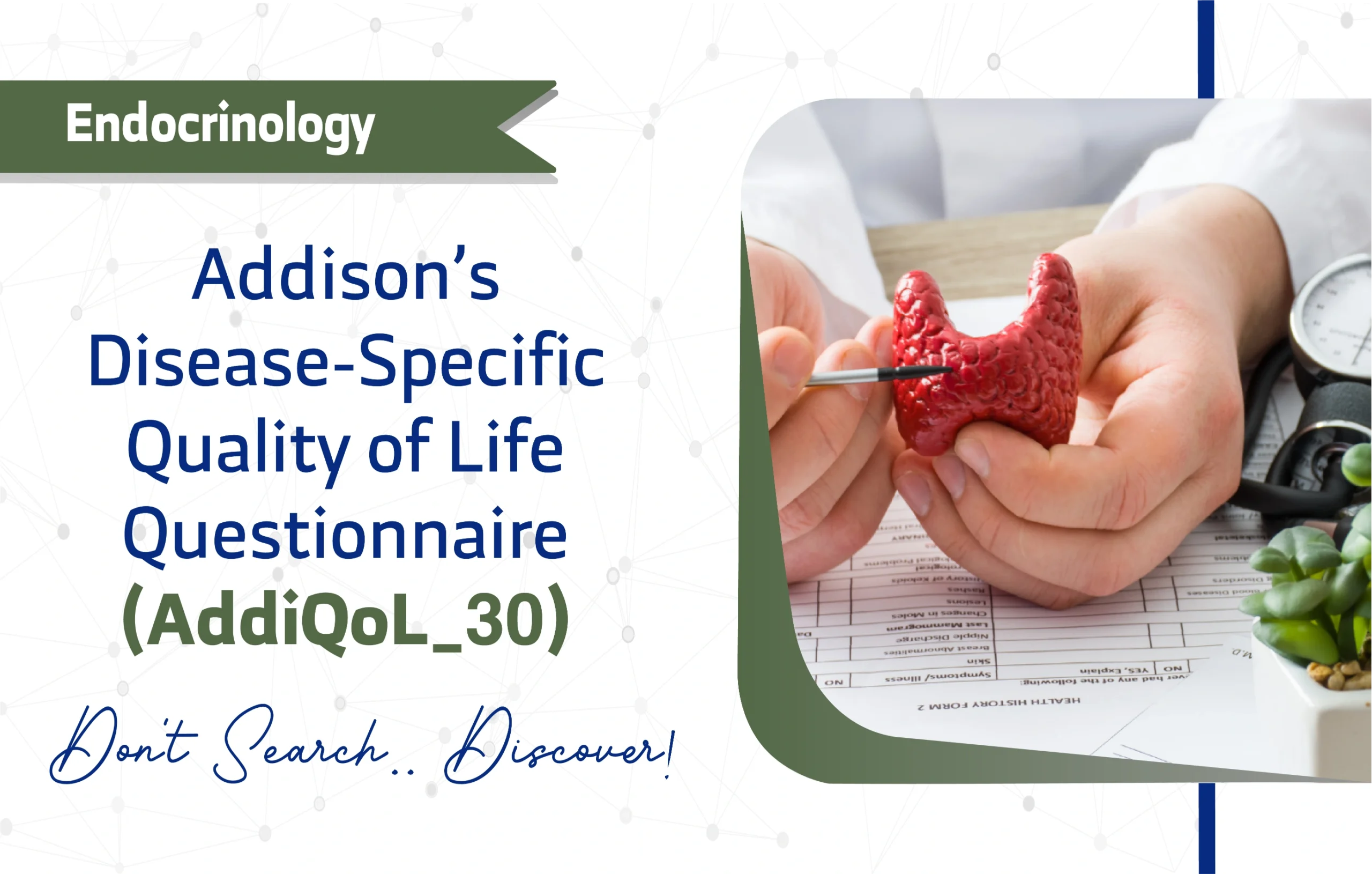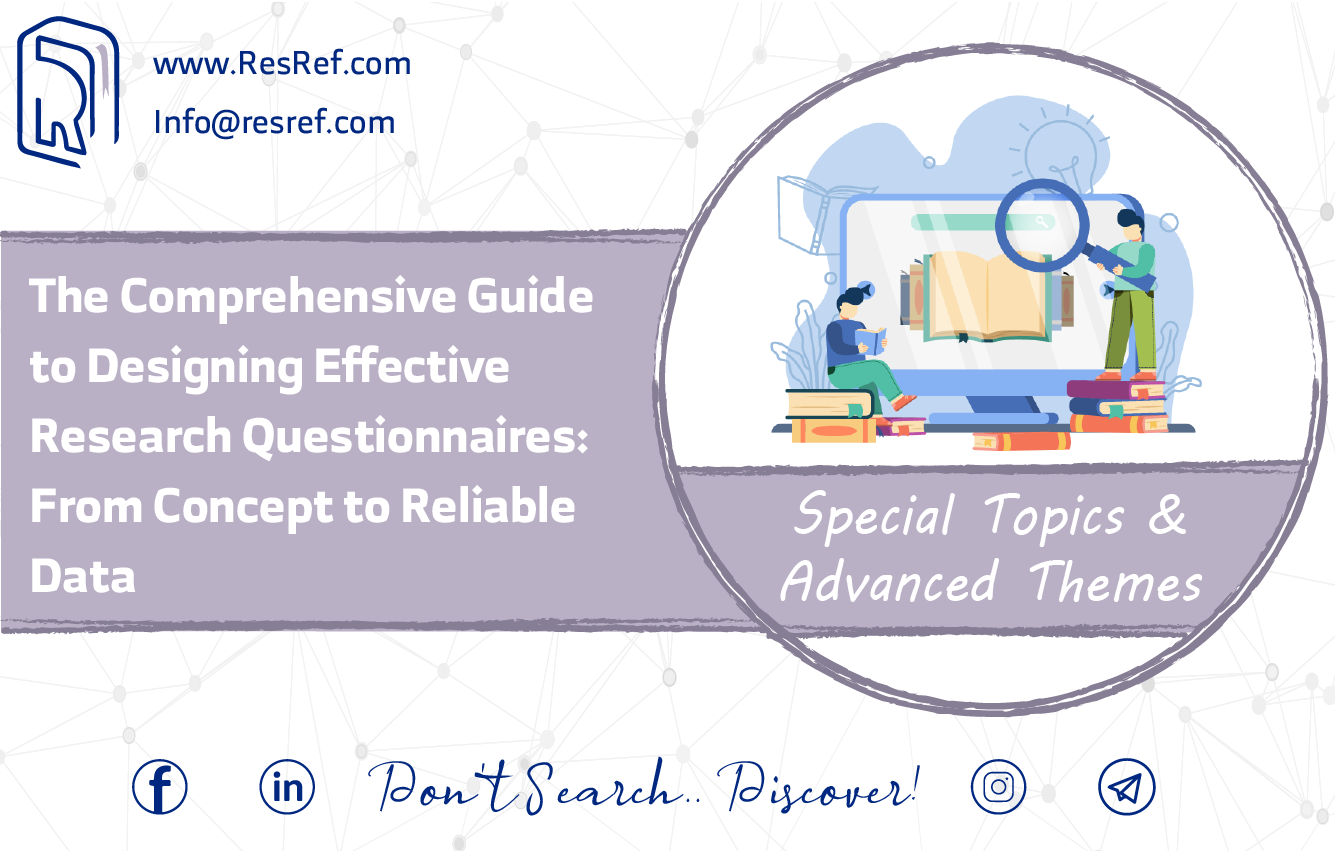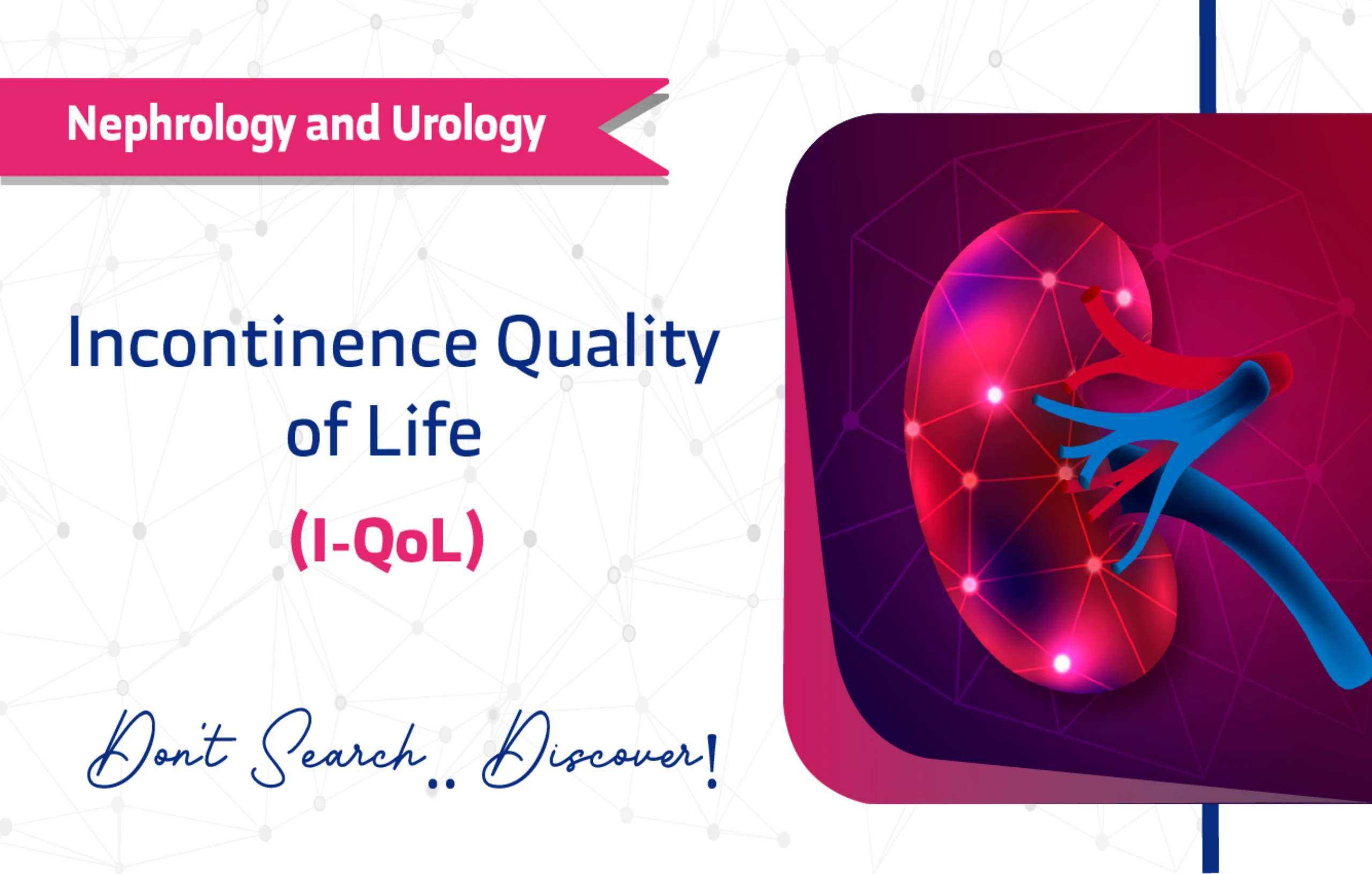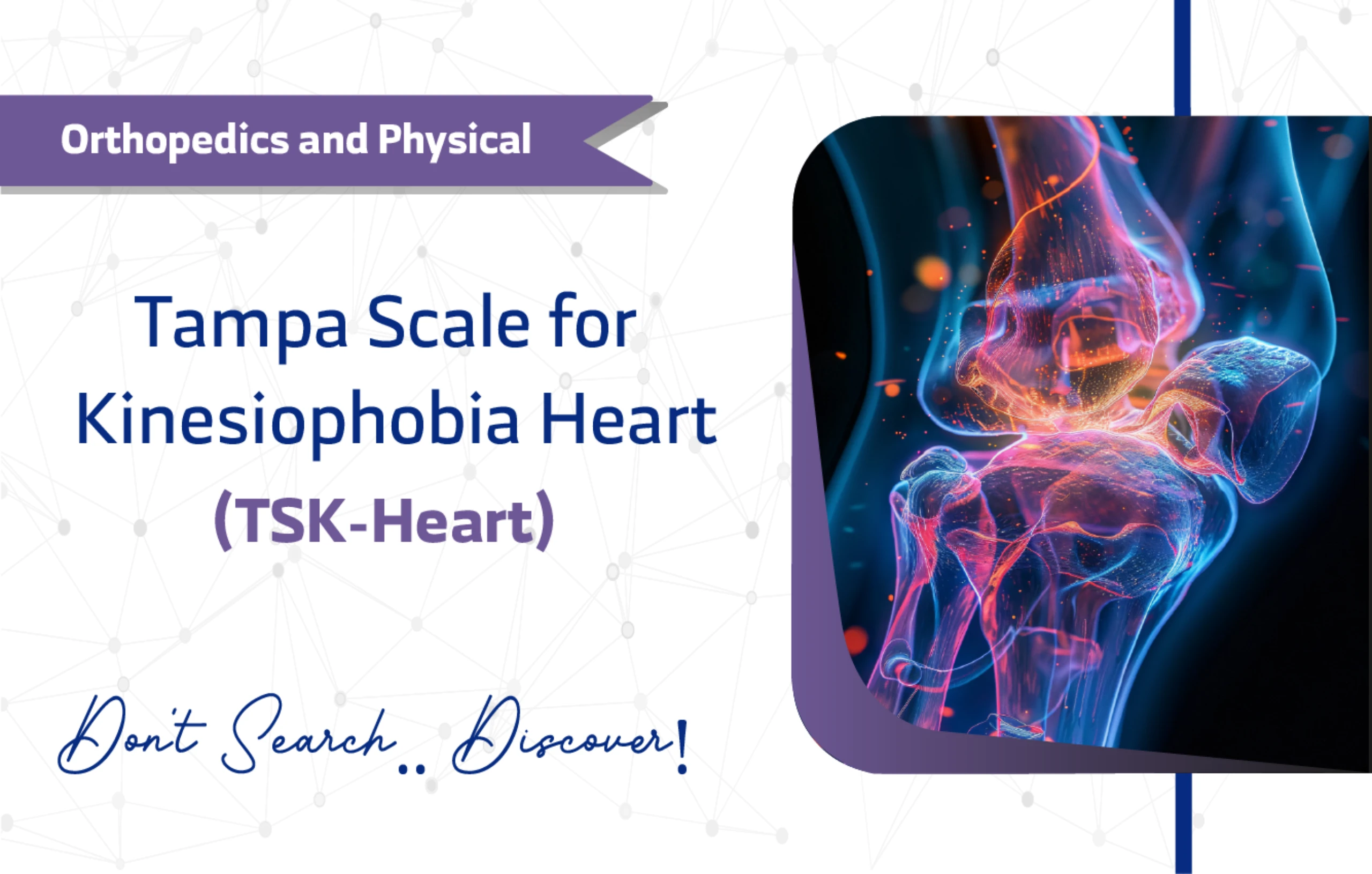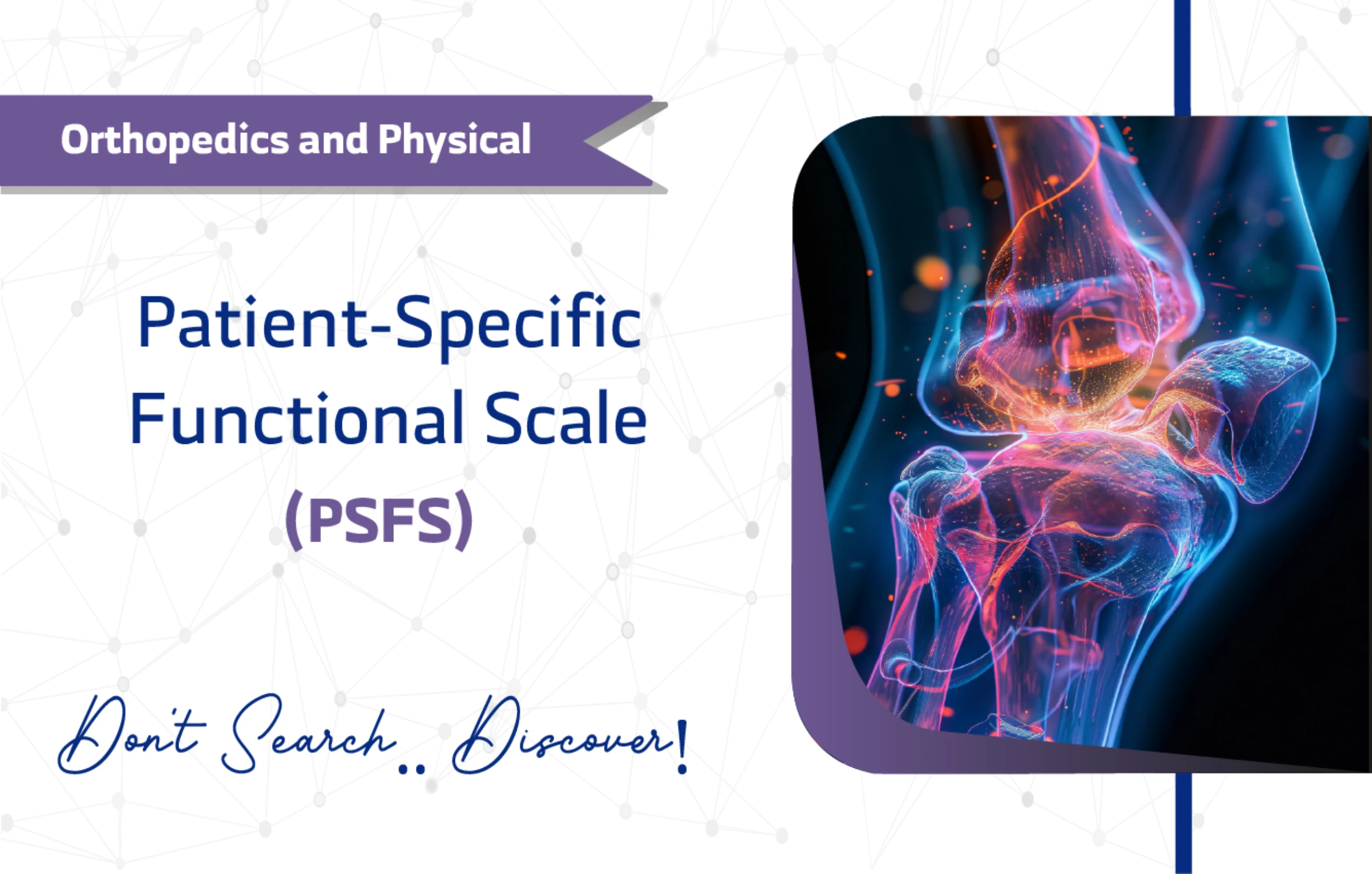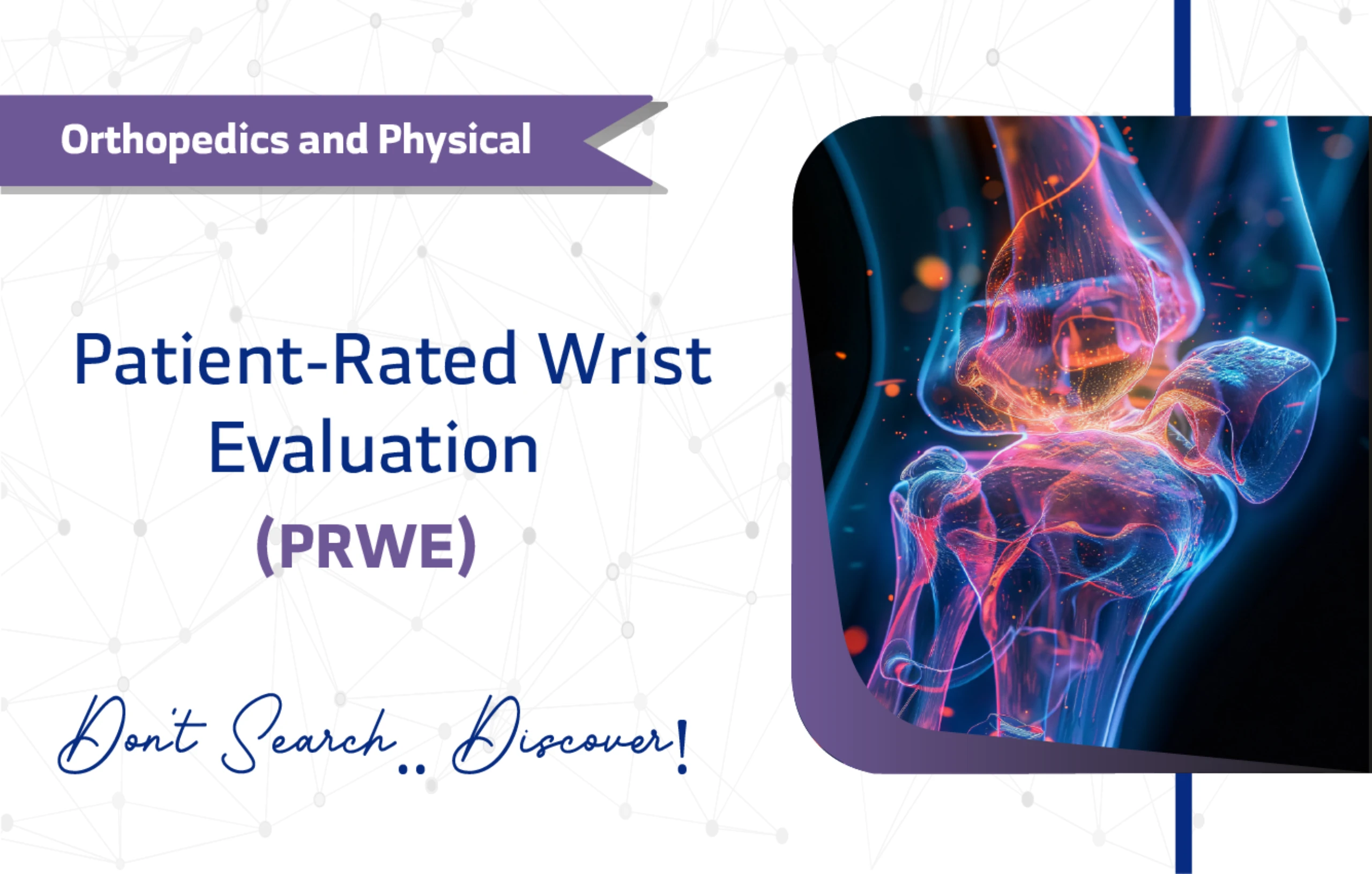Introduction
Addison’s disease, a rare but serious endocrine disorder, significantly impacts patients’ quality of life, often leading to chronic fatigue, emotional disturbances, and various physical symptoms. Therefore, accurately assessing the holistic burden of this condition is paramount for effective patient management and robust research. In response to this crucial need, the Addison’s Disease-Specific Quality of Life Questionnaire, known as AddiQoL-30, was developed and validated in 2012 by a distinguished group of authors including Marianne Øksnes and Sophie Bensing.
This 30-item questionnaire offers a robust, disease-specific tool to measure quality of life in adults living with Addison’s disease. Furthermore, with its rigorous validation and growing recognition, as evidenced by over 100 Google Scholar citations, AddiQoL-30 has become an indispensable instrument for endocrinologists, researchers, and healthcare professionals globally. This article delves into the core features, diverse applications, and inherent limitations of AddiQoL-30, providing essential insights for those dedicated to improving outcomes for patients with Addison’s disease.
Key Features of the Addison’s Disease-Specific Quality of Life Questionnaire
Purpose and Use of the Addison’s Disease-Specific Quality of Life Questionnaire
AddiQoL-30 seeks to evaluate the quality of life in patients with Addison’s disease, focusing on physical, emotional, and social impacts. By delivering a disease-specific assessment, it strengthens clinical decision-making and supports research into treatment efficacy. Specifically, it pinpoints areas of patient burden, enabling clinicians to implement targeted interventions.
Target Population
AddiQoL-30 is validated for adults aged 18 and older including:
- young adults (18–24).
- middle-aged adults (25–44).
- older adults (45–64).
- seniors (65+).
It is specifically designed for patients with Addison’s disease, making it highly relevant for endocrinology-focused clinical and research settings.
Structure of the Addison’s Disease-Specific Quality of Life Questionnaire
The AddiQoL-30 comprises 30 items divided into four sub-dimensions:
- Fatigue (8 items): Assesses energy levels and exhaustion (items 1, 2, 3, 4, 5, 23, 26, 27).
- Emotions (8 items): Evaluates emotional well-being (items 11, 12, 13, 14, 15, 24, 25, 30).
- Symptoms (9 items): Covers physical symptoms like pain and weakness (items 6, 9, 16, 17, 18, 19, 20, 21, 22).
- Miscellaneous (5 items): Includes sleep (items 7, 8), sexuality (item 10), and impact of concurrent diseases (items 28, 29).
Responses use a 1–6 Likert scale, ensuring comprehensive coverage of quality-of-life aspects.
Scoring Method
The AddiQoL-30 utilizes a 6-point Likert scale for responses, where items indicating a positive impact on quality of life are scored from 1 to 6. Conversely, items indicating a negative impact are reverse-scored. Importantly, these raw scores are then converted to a 1 to 4 point range: a score of 1 remains 1 point, scores of 2 and 3 convert to 2 points, and scores of 4, 5, and 6 convert to 3 and 4 points respectively. The final total score is calculated as the algebraic sum of all item scores, with a maximum possible score of 120 points. Crucially, a higher total score consistently indicates a better overall quality of life. It is noteworthy that AddiQoL-30 does not employ specific cut-off scores; rather, the emphasis is on the overall score as an indicator of QoL.
Administration Format of the Addison’s Disease-Specific Quality of Life Questionnaire
Patients complete the questionnaire in approximately 10 to 15 minutes. Healthcare providers can administer it in paper-based or digital (online) formats, offering flexibility for both patients and clinicians. Importantly, no specialized training is necessary for administration or interpretation, making it ideal for self-administration.
Applications of the Addison’s Disease-Specific Quality of Life Questionnaire
AddiQoL-30 serves multiple roles in clinical and research settings:
- Screening: Identifies patients with significant quality-of-life impairments due to Addison’s disease.
- Monitoring: Tracks changes in quality of life over time, particularly in response to therapies.
- Treatment Planning: Guides clinicians in developing personalized treatment plans.
- Research: Supports clinical trials and studies evaluating interventions for Addison’s disease.
For instance, its use in assessing fatigue and emotional health helps tailor glucocorticoid replacement therapies.
Languages and Availability
To support global applicability, AddiQoL-30 is available in:
- English
- German
- Norwegian
- Swedish
- Italian
- Polish
This multilingual availability facilitates its use in diverse populations, though cultural adaptations may be needed for broader application.
Reliability and Validity
AddiQoL-30 is highly reliable, with a Cronbach’s alpha of 0.93, indicating strong internal consistency (Øksnes et al., 2012). Validation studies confirm its robustness in European patients with Addison’s disease, demonstrating sensitivity to quality-of-life changes (Zdrojowy-Wełna et al., 2023). With 107 citations on Google Scholar, AddiQoL-30 is a trusted tool in endocrinology research.
Cost and Licensing of the Addison’s Disease-Specific Quality of Life Questionnaire
AddiQoL-30, a proprietary questionnaire, requires permission for use. Although not freely available online, researchers and clinicians can typically access it upon request for academic or clinical studies. For instance, contacting Marianne Øksnes at marianne.oksnes@med.uib.no or the EURADRENAL consortium provides details on access permissions and usage guidelines.
Other Versions
Beyond the primary 30-item version, AddiQoL also exists in other forms to cater to different research or clinical needs:
- AddiQoL-8 (short version): This concise version offers a quicker assessment, potentially useful in busy clinical settings or for preliminary screening.
- AddiQoL-36: This expanded version may provide more granular detail for specific research questions or in-depth clinical evaluations.
These alternative versions enhance the adaptability and utility of the AddiQoL instrument across a wider range of scenarios.
Related Questionnaires
Several other questionnaires address aspects of quality of life or related domains in endocrine conditions, offering avenues for comparative or complementary research. These include:
- PGWB: The Psychological General Well-Being Index.
- SF-36: The Short-Form-36.
- AGHDA: Quality of Life-Assessment of Growth Hormone Deficiency in Adults.
- AcroQoL: Acromegaly Quality of Life Questionnaire.
- CushingQoL: The disease-specific questionnaire for evaluating QoL in Cushing’s syndrome.
These tools, while not identical, provide valuable contexts for understanding the broader landscape of quality of life assessment in endocrinology.
Limitations and Considerations
Despite its strengths, the AddiQoL-30 has a few limitations:
- Self-report measure: Respondents may be influenced by social desirability bias or personal interpretation.
- Cultural Bias: Limited validation in non-European populations may require cultural adaptations.
- Limited Validation Studies: Further studies are needed to confirm applicability across diverse groups.
Additional Resources
For further exploration, consider these resources:
- The Original Validation Study.
- Access the original validation study as a PDF here.
- Access the questionnaire by contacting Marianne Øksnes at oksnes@med.uib.no.
The full AddiQoL questionnaire is not freely available online. Researchers or clinicians can request access, typically for academic or clinical studies, by contacting the original authors or the EURADRENAL consortium for permissions and usage guidelines.
Frequently Asked Questions (FAQ)
- Who can use the AddiQoL-30?
Clinicians, researchers, and healthcare providers use AddiQoL-30 for patients aged 18 and older with Addison’s disease. - How long does it take to complete the AddiQoL-30?
Patients typically take 10–15 minutes to complete AddiQoL-30, making it feasible for clinical and research settings. - How is the AddiQoL-30 administered?
Healthcare teams can administer AddiQoL-30 via paper or digital formats, offering flexibility in usage. - Is there any cost to using the AddiQoL-30?
AddiQoL-30 requires permission for use. Contact Marianne Øksnes at oksnes@med.uib.no for access details.
A word from ResRef about the Addison’s Disease-Specific Quality of Life Questionnaire
AddiQoL serves as a valuable tool for assessing quality of life in Addison’s disease patients. Validated across multiple studies, it supports clinical and research settings with robust reliability.
References
- Øksnes M, Bensing S, Hulting AL, Kämpe O, Hackemann A, Meyer G, Badenhoop K, Betterle C, Parolo A, Giordano R, Falorni A, Papierska L, Jeske W, Kasperlik-Zaluska AA, Chatterjee VK, Husebye ES, Løvås K. Quality of life in European patients with Addison’s disease: validity of the disease-specific questionnaire AddiQoL. J Clin Endocrinol Metab. 2012 Feb;97(2):568-76. doi: 10.1210/jc.2011-1901. Epub 2011 Nov 16. PMID: 22090270. Study link.
- Zdrojowy-Wełna A, Stańska A, Halupczok-Żyła J, Szcześniak D, Bolanowski M. Health-Related Quality of Life in Patients with Primary Adrenal Insufficiency. J Clin Med. 2023 Nov 22;12(23):7237. doi: 10.3390/jcm12237237. PMID: 38068288; PMCID: PMC10707620. Study link.


